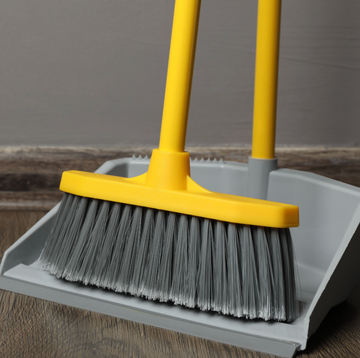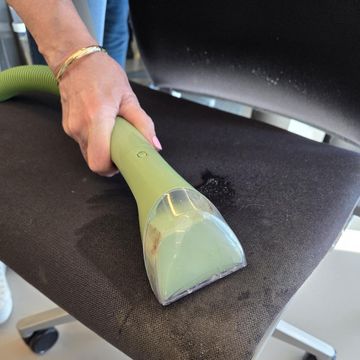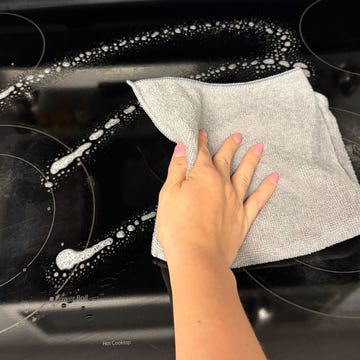- While it's common to make your bed right after waking up, experts actually recommend giving your bedding time to air out.
- Our Good Housekeeping Institute cleaning expert shares why and reveals how long you should wait before making your bed.
As a home editor, it's no surprise I take home organization and cleanliness pretty seriously. And there's one thing I absolutely cannot stand—an unmade bed. Once I'm up, the first thing I do is neatly straighten out my sheets and comforter, fluff my pillows, and move on with my day. It's almost automatic at this point.
When I heard that you actually shouldn't make your bed immediately, I took it hard. What do you mean I'm supposed to leave the room with an unmade bed? Skeptical, I reached out to our cleaning expert at the Good Housekeeping Institute for backup. Read on for the reasoning behind why you shouldn't make your bed right away, how long you should wait, and more mattress cleaning tips.
Why You Should Wait to Make Your Bed
It's normal to sweat throughout the night, which leads to moisture buildup on your sheets and pillows. When you make your bed right away, you're not giving your bedding any time to air out.
"If you sweat at night, there's dampness there and the bedding is warmed from your body heat, so you want to give it a chance to dry out and cool off before making the bed. Allergens, like dust mites, and germs, like bacteria, thrive in warm, moist conditions," says Carolyn Forté, executive director of the GH Institute Home Care & Cleaning Lab.
How Long Is Long Enough?
If you make your bed right away (like me), the good news is you don't have to change your morning routine too much. By the time you're done with your morning cup of joe, it should be okay to resume your bed-making habits.
"Pull down the covers a bit and remove and fluff the pillows. Then in about 30-60 minutes, it should be good to make. You can always give the sheets a feel to make sure they're dry," says Forté. "Making the bed everyday is an important step to keeping your home organized and tidy and a good habit to get into."
How to Keep Your Mattress Clean
While airing out your bedding every morning will help you avoid excess moisture buildup, there are a few other tactics you can try as well. "To keep the mattress and pillows clean and dampness free, I recommend using pillow liners and mattress pads for extra protection," says Forté. "Some are even moisture-resistant."
Regardless of how you make your bed or the type of bedding you use, you should still clean your mattress regularly. That means using the upholstery tool on your vacuum cleaner to remove any dust, steaming it with a garment steamer to kill dust mites, and spot-cleaning stains throughout.
Laura Millar (she/her) is the assistant lifestyle editor for Good Housekeeping, where she covers home design. Prior to joining Good Housekeeping in 2024, she wrote for NBC's TODAY.com, where she covered everything from entertainment news to pop culture updates.














